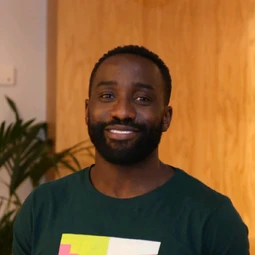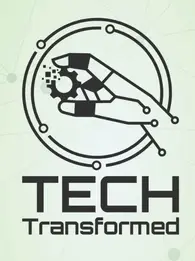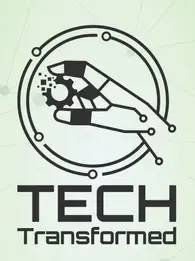
In the past year, AI has proven that it can be transformational for work. Whilst technology is already starting to help people reduce time spent on repetitive work or manual work, it also poses a very real threat to jobs. And in a few areas is this more true than for HR and recruitment teams?
The Institute for Public Policy Research’s (IPPR) worst-case scenario is that 8 million UK jobs will be replaced. For HR teams this is an uncomfortable and uncertain reality, raising questions about hiring strategies of the future, and how AI will change them.
There’s a pressing need for enterprises to find a middle ground for AI and humans to work together - but how can HR and recruitment teams navigate this shift?
How AI is shaping an entire generation of careers
AI is altering the views of an entire generation when it comes to work and careers. According to a survey by Fiverr this year, nearly 7 in 10 (69%) of ‘Generation Zs’ are shunning full-time careers, instead planning to go self-employed or freelance.
This group cites self-employed and freelance careers as more stable than full-time employment, with 'less chance of being replaced by AI or laid off'.
To continue to attract the best talent and most highly skilled workers, HR and recruitment teams need to change their strategy by moving away from only offering roles that fit in the ‘cookie cutter’ mould of full-time, ‘nine to five’ employment. They must expand beyond a relentless search for traditional workers, and explore more freelance-based roles.
The new roles created by AI
There’s an even greater reason for enterprises to cater to this new generation of workers. Numerous studies in the past few months alone suggest that businesses do not have the talent they need to work with and innovate around AI. Nearly half of business leaders in Europe see a lack of AI talent as a barrier to innovation and 41% of workers admit they lack the technical abilities needed to work alongside and use AI systems.
However, freelancers - known for their entrepreneurialism and tech savviness - have been quick on the AI uptake. On Fiverr in particular, searches for AI-related services have skyrocketed in the past year.
Many companies are exploring ways to integrate AI into their business platforms through AI applications, working with skilled freelance developers to build custom AI solutions. Since the beginning of the year, earnings for freelancers offering AI services related to programming & tech — such as AI app development — were responsible for the majority of revenue for AI services.
How businesses are using AI to find candidates
To find talent, businesses ironically need AI guidance to evaluate candidates and bridge skills gaps. AI-powered recruiting tools offer advantages over traditional recruiting methods, including analysing large amounts of data, automating the recruitment process, and helping companies find and hire passive candidates who may not be actively looking for a job.
AI can also be used to screen CVs and reveal the most qualified candidates for a job, match candidates with job openings based on their skills, experience and preferences, schedule interviews and reduce the time it takes to fill open positions
Onboarding freelancers and contractors are already a fast process - favoured by businesses of all sizes that need support at speed. However, given that 42% of the average UK company’s workforce is now freelancers, continuing to innovate in this space with AI is also important. Fiverr has been adding AI assistance to help enterprises onboard external contributors and simplify access to the right freelance talent.
Leveraging “Fiverr Neo,” Fiverr’s AI-powered co-pilot technology, businesses receive tailored service recommendations to enhance their projects.
In a work environment where hiring for the right skills at speed is vital for helping businesses keep pace with technological change, the time that can be saved through AI is clear to see. However, it is essential that humans stay part of the loop - particularly when it comes to bias, and the personal touch all companies should wish to portray.
This will be through being part of a hybrid approach, using data where needed, but with human initiation, communication, and empathy at the centre of the hiring and development process.
We cannot win without AI
AI continues to create strong opinions when it comes to jobs and hiring, putting hiring teams in a challenging position. However, just because AI poses a threat to jobs, does not mean that companies cannot take advantage of how it can speed up the hiring process and help to fill roles quickly - right now- at a time when speed is the key to success.
So rather than shunning technology in fear at this juncture, hiring teams must find ways to work alongside it, and keep humans in the loop at every stage of the process - as whilst AI is a major player in the war for talent, we cannot currently win without it.








